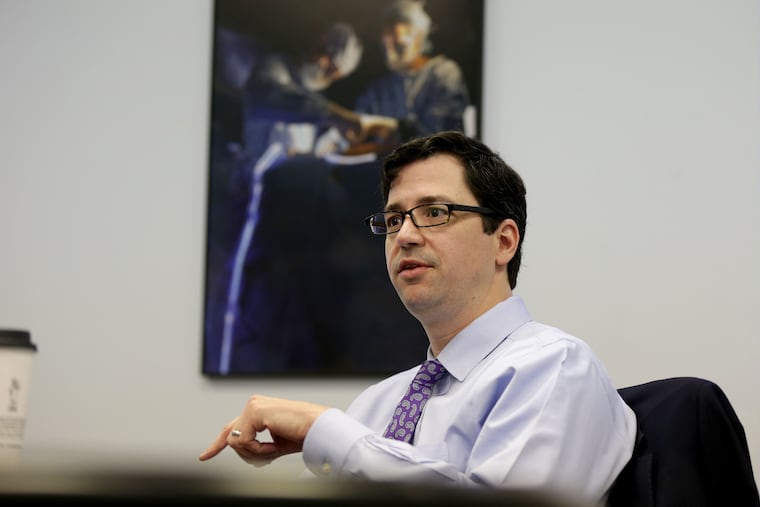Penn finds a way to reduce ICU doctor burnout, improve fulfillment
Shorter rotations improved both burnout and fulfillment.

Cutting the length of rotations in medical intensive care units in half also cut rates of physician burnout in half while additionally improving feelings of fulfillment, according to a new pilot study from Penn Medicine.
The results were strong enough that Penn has changed rotations for critical care doctors on its medical intensive care units (MICUs) at the Hospital of the University of Pennsylvania, Penn Presbyterian Medical Center, and Cpl. Michael J. Crescenz VA Medical Center. Instead of traditional rotations of 14 consecutive days, these critical care doctors, also known as “intensivists,” now work seven straight days, or two weeks with a weekend break in between. Over a year, they still work eight to 20 weeks in the ICU, interspersed with time doing research and outpatient care.
When critical care doctors are assigned to a MICU, they typically work 10- to 12-hour days in the unit, then take phone calls at home, including about two overnight, said Mark Mikkelsen, lead author of the study and chief of medical critical care at Penn Medicine. The work is especially difficult because the patients are so sick. More than a quarter of patients at one of the MICUs in the study died while there.
Physician burnout is tied to higher turnover and lower quality care. Burnout affects communication skills and attention, Mikkelsen said, as well as the ability to be emotionally present for patients and their families.
Growing numbers of hospitals have been trying shorter rotations as a way to combat burnout and compassion fatigue, he said, but Penn was the first to measure the impact. In some countries, he said, even a seven-day stint is considered too long.
One argument for longer rotations is that they improve continuity of care for patients and allow more consistent relationships with medical residents. Mikkelsen said there were no signs that shorter rotations reduced quality.
Mikkelsen tried the shorter rotation himself and found it “remarkably different.” He said he was considerably less tired. In the past, he said, it was not unusual for him to catch a cold or some other illness after a 14-day rotation.
The study, which was published Tuesday in the American Journal of Respiratory and Critical Care Medicine, surveyed 29 physicians while on and off MICU rotations of different lengths between May 2018 and February 2019. It found that levels of burnout and fulfillment varied, although fulfillment was more stable.
Seventy-six percent of intensivists reported burnout on the last day of a 14-day rotation compared with 35 percent on the last day of a seven-day rotation. Surprisingly, 73 percent said they were burned out on the seventh day of a 14-day rotation, possibly because they were anticipating what the second half of the rotation was going to be like, Mikkelsen said.
Fulfillment rose from 43 percent in the long rotation to 59 percent in the shorter one. Though unusual, it was possible to feel both burned out and fulfilled.
“There is tremendous joy in what we do, even as we interact with patients and their loved ones on the worst of days,” Mikkelsen said.